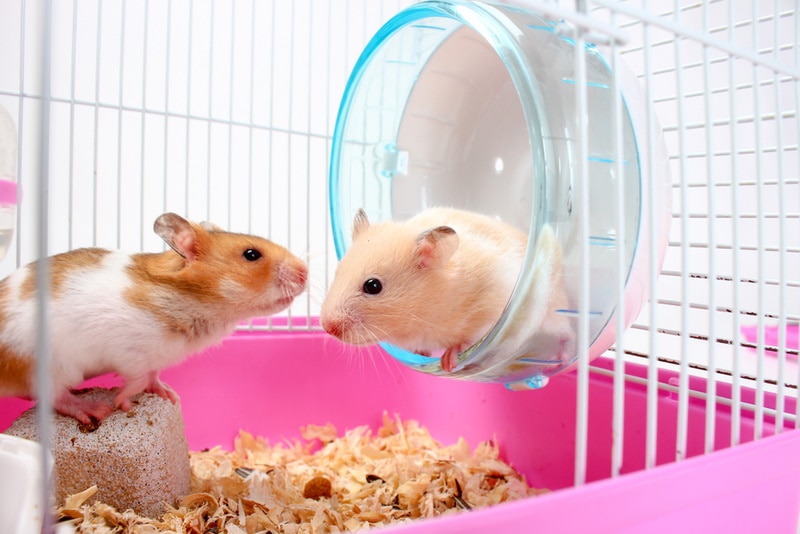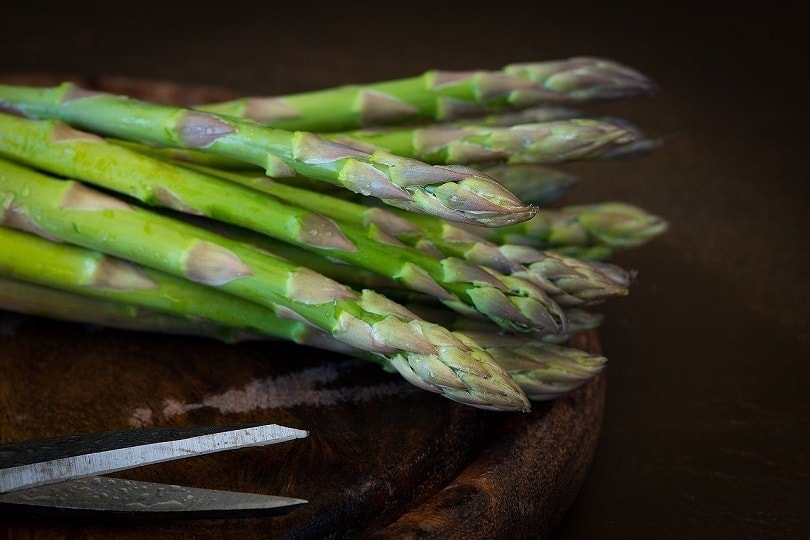Can Hamsters Eat Almonds? Vet Approved Facts & FAQ
Updated on
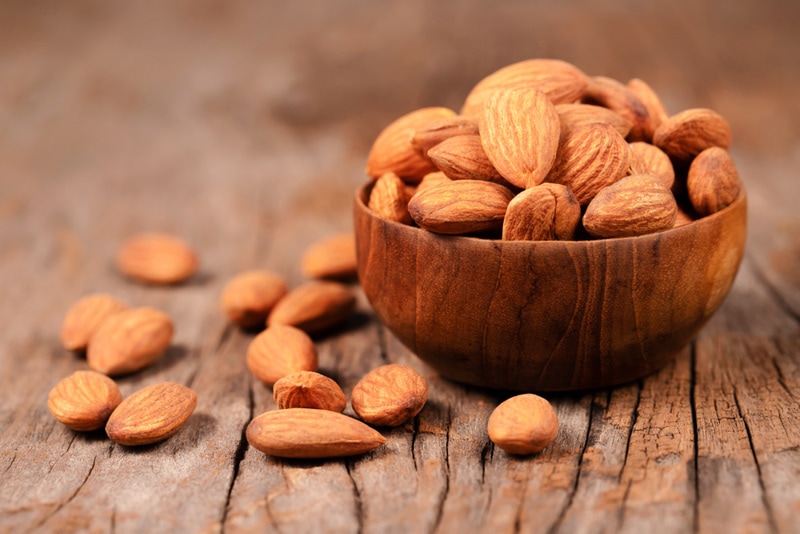
Click to Skip Ahead
Most pet hamsters descended from a litter of Syrian hamsters brought to the United States from Aleppo in 1930. Their wild counterparts are omnivores that eat a wide variety of foods, from seeds to nuts to insects. That broad description would seem to indicate that almonds are safe for them to eat, particularly since wild hamsters now feed on agricultural crops in their native lands. These animals may have encountered almonds in the wild. So, hamsters can have an occasional almond, but several caveats exist. Some are common sense and what you’d expect; others are unexpected but still worth knowing.
The Nutritional Value of Almonds
Almonds are a healthy snack for people, boasting many potential cardiovascular and digestive benefits; it’s no wonder you’d want to share them with your pet. A 1-ounce serving of unroasted almonds contains about 76.5 g of magnesium, 76.3 g of calcium, and 6 g of protein. They are also rich in phosphorus, potassium, and vitamin E.
Experts recommend that hamsters get between 15 to 20% protein. That would seem to put almonds high on the list of healthy foods. However, it’s not a slam dunk when it comes to hamsters. While they are high in minerals and fat-soluble vitamins, they lack many other vital nutrients. That puts them in the treat category instead of being a significant part of their diet, despite their health benefits.
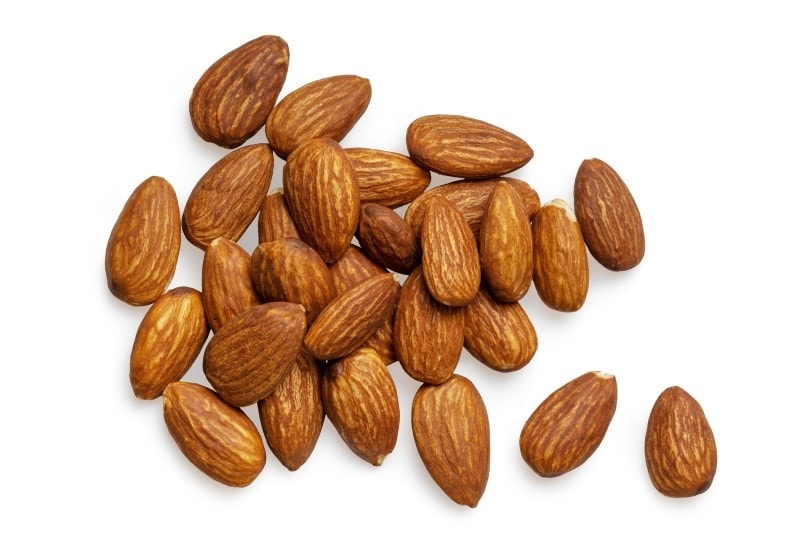
The Problems With Feeding Almonds to Hamsters
There are two main problems when it comes to feeding almonds to hamsters; the first is fat. Almonds are 50% fat, with a 1-ounce serving containing 14.1 g of fat. Obesity is just as dangerous for tiny pets as it is for cats, dogs, and humans. Remember that treats should only make up a maximum of 10% of your pet’s diet, and the fat content of almonds means that these are one treat that should be kept to an absolute minimum.
The other issue is the way in which the almonds might be packaged. It is common for almonds to be roasted and salted, and this is definitely a no-no for your hamster.
FAQ
Are Some Almonds Poisonous?
You might have heard about poisonous almonds, and there is some truth to this. There is a variety called bitter almonds, that are not commonly found in supermarkets. This type of almond contains higher amounts of a substance called amygdalin, which is responsible for their bitter flavor. When metabolized by the body, amygdalin is converted into cyanide, which we know is poisonous.
Interestingly, it’s not just bitter almonds that contain this substance; regular almonds contain it as well, but in much smaller amounts, as do the stones of apricots and peaches, and apple seeds. But don’t start throwing away your apples; the amount of apple seeds you would need to consume to get a worrying level of cyanide would be more than anyone could ever manage in one sitting!
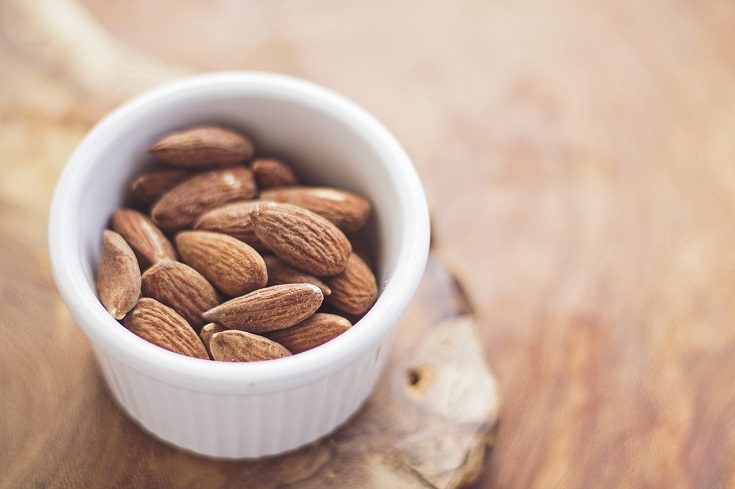
How Toxic Are Sweet Almonds?
The ones we eat are from another variety and, thus, have a different concentration of amygdalin. They average 25.2 mg/kg, whereas bitter almonds are off the charts at 1,062 mg/kg. Not that they would probably enjoy them, but be sure to never feed bitter almonds to your hamster, or any other pets.
Final Thoughts
You can give your hamster an almond as a special treat. However, it must be unsalted and unflavored. The high caloric and fat content of these nuts makes them unsuitable as a regular treat. We recommend sticking with a commercial diet and treats formulated specifically for rodents like hamsters. That’ll ensure your pet is getting complete and balanced nutrition to meet their dietary needs.
See Also:
- Can Hamsters Eat Cucumbers? Vet-Approved Facts & FAQ
- Can Hamsters Eat Cashews? Vet Approved Facts & FAQ
Featured Photo Credit: Jiffy Avril, Shutterstock



